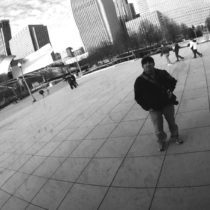Landscape Architecture for Landscape Architects › Forums › GENERAL DISCUSSION › Freakonomics and transportation planning myths and realities
- This topic has 1 reply, 5 voices, and was last updated 13 years, 8 months ago by
 Roland Beinert.
Roland Beinert.
-
AuthorPosts
-
August 18, 2010 at 11:38 pm #168115
 Trace OneParticipant
Trace OneParticipanthttp://freakonomics.blogs.nytimes.com/2010/08/17/the-antiplanner/?apage=2#comments
this is a pretty intersting piece on transporation planning, if you care about that..
August 19, 2010 at 5:38 am #168120 Roland BeinertParticipant
Roland BeinertParticipantI’m currently living in the tiny town of Moscow, ID. To the south is Lewiston, ID near Hell’s Canyon and the Snake River. To the north is Lake Coeur d’Lene. I think it would be nice to hop on a train with my folding bike, get off in Coeur d’lene or Lewiston and ride around on the trails. Sure I can do this in my car, but then I have to pay for gas, find a parking spot, worry about the jerk who’s tail-gating me. Am I really the only person in the US, other than some planners, according to the article, who would be willing to take a train?
Maybe I should move to Europe. At least there I’d have the choice to ride rail when I wanted.August 19, 2010 at 12:27 pm #168119 Jason T. RadiceParticipant
Jason T. RadiceParticipantThe major issue with rail is the cost. Look at slAmtrak. It loses VAST quantities of taxpayer money due to insane overhead costs, which include labor and equipment maintenance. Most routes are subsidized, as they cannot make money whatsoever. Even in very dense urban areas, the metro rail or subway systems also bleed money. Private enterprise used to run passenger lines, they went away because they couldn’t make any money. The expansion to the Dulles Airport in DC will cost BILLIONS, and will never recoup its expense. More money the taxpayer has to spend! Why is it I can catch a bus to NYC for $30 round trip when slAmtrak is $70 one way? And the bus doesn’t stop along the way! I bet if people actually paid the actual cost for their ticket, passenger rail would be almost nonexistent, and subways systems would not be nearly as large.This could have an advantage, as the neighborhoods closer to the transit in the inner cities might actually improve. The environmental aspects are even in doubt, as many trains run nearly empty, negating the efficiency. A study was done recently in England with that conclusion,
While I am a frequent subway rider, and I like passenger rail, it doesn’t make any economic sense outside of very dense urban areas, and even then, it should be scrutnized heavily.. (BTW, if the tax money you spend on gas was used for the roads, as it is supposed to be, they would be paved with gold. The government sqaunders the money for whatever it wants ad leaves out infrastructure to rot!)
August 19, 2010 at 2:54 pm #168118 Trace OneParticipant
Trace OneParticipantDisagree, Jason, no surprise – I think we often disagree. Roads, gasoline, suburb construction (driving oriented ) have been heavily subsidized for decades – Amtrak gets nothing, pratically in comparison..If you read the comments on this article, a couple of the posters laid out the subsidization inequality pretty well..I l ove Amtrak, take it all the time – and it costs me 100$ roundtrip to go from Fresno to San Diego, whereas Greyhound, to get me from Fresno to Gilroy (two hours away as opposed to eight hours!) costs $70 dollars round trip !!! A tax on the poor, because that is who takes Greyhound!!
So I am your typical pro-public transport liberal planner/LA type..We have not made ANY headway against the forces of road building pretty much ever in america ….Europes high-speed rail is all done..We are still stalling, quibbling..It will never happen..State and Federal Highway Dept. have the same goal as ever – move more cars faster, and as far as they are concerned, in fifty years they will still be moving more cars faster..
that’s my 2cAugust 19, 2010 at 5:11 pm #168117 BoilerplaterParticipant
BoilerplaterParticipantWe are still stalling, quibbling..It will never happen..State and Federal Highway Dept. have the same goal as ever – move more cars faster, and as far as they are concerned, in fifty years they will still be moving more cars faster..
That’s one of the things that caused me to experience cognitive dissonance about my job with a state DOT.
I can’t argue with O’Toole’s math, but the economies of some countries (specifically Germany & China) that have or are building HSR are doing a LOT better than ours. Maybe its unrelated, or maybe they realize something that the majority of the American public has yet to realize. Peak Oil anyone?
August 19, 2010 at 6:51 pm #168116 Chris WhitisParticipant
Chris WhitisParticipantBut the same can be said about highways. They don’t recoup their costs and ‘bleed money’ as well. Why the double standard? If people had to start paying the true cost of highways, they might be much less extensive as well (tolling, raise gas taxes). I have my doubts that the roads would be paved with gold. TxDOT recently did a study that showed their best performing roads in terms of gas tax returns recouped about 60% of cost. That was best case! You can also get into the issue that local road users are subsidizing highway users as local roads don’t see gas tax revenue, yet it’s burned there as well.
We need to be looking at multi-modal forms of transportation if we’re going to relieve congestion. Many transit systems suck because they aren’t comprehensive or linked efficiently with other modes of travel or have zoning in place that would encourage appropriate development along corridors. There’s also too much emphasis on commuter rail/ LRT and feel streetcar systems providing transit in actual urban areas can be very beneficial for urban mobility, current transit planners only seem to focus on how to push transit to ease congestion in auto-centric areas when those areas have chosen the car and all that goes with it.
-
AuthorPosts
- You must be logged in to reply to this topic.

